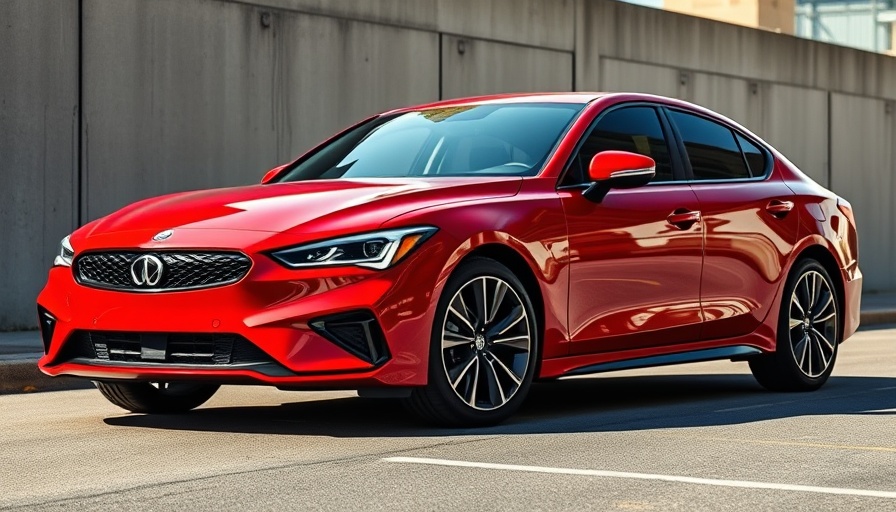
Nissan Sheds the Most Affordable Car: What It Means for Consumers
Nissan's decision to discontinue the production of its five-speed manual-equipped Versa could signal a significant shift in the automotive landscape, especially for budget-conscious consumers. Historically priced at $17,190, this model has been a staple for those looking for an affordable new car in the U.S. market. However, with mounting economic pressures, including tariffs and low sales, Nissan is opting to streamline its offerings.
The Role of Tariffs in Shaping Car Prices
The Versatility of the Nissan Versa extended beyond its economical price point. However, external factors such as President Trump's 25% tariffs on imports from Mexico dramatically impacted its affordability. A model that once started at a price just under $18,000 would now cost consumers considerably more due to added manufacturing costs. Following these tariff increases, enthusiasts and budget buyers are left wondering whether they will have to adjust their expectations when it comes to purchasing a new vehicle.
Market Trends: The Future of Affordable Cars
The exit of the Versa raises questions about the future of affordable cars in the United States. With lower sales figures illustrating a decline in demand, other manufacturers may also reevaluate their budget offerings. According to a recent analysis, remaining options for buyers seeking manual transmission vehicles now start well over the $30,000 mark. From the Ford Mustang to the Toyota GR Corolla, these cars come with significantly higher price tags, shutting out many would-be drivers.
Shifting Consumer Preferences: A Bigger Picture
A noteworthy aspect of this transition is the changing consumer behavior towards vehicles. The market has seen a gradual shift towards SUVs and electric vehicles rather than small sedans. This trend, combined with the move away from manual transmissions—despite their nostalgic appeal—indicates an industry-wide transformation, where performance and utility take precedence over affordability.
The Impact on Buyers and Market Dynamics
The discontinuation of the Nissan Versa may be negligible in terms of overall sales impact, given that it represented less than 5% of total Versa sales in 2024. Nevertheless, the decision reflects broader industry challenges that can reverberate through various sectors. The automotive industry is always in flux, and decisions like these often lead to new market dynamics, affecting not just manufacturers but potential buyers as well.
As Nissan pivots toward models with stronger sales performance, prospective car buyers need to consider alternative options and prepare for a landscape where affordable cars are increasingly scarce. This scenario calls for a deeper understanding of the current market trends, the implications of tariffs, and consumer preferences that significantly impact purchasing decisions.
 Add Row
Add Row  Add
Add 




 Add Row
Add Row  Add
Add 

Write A Comment